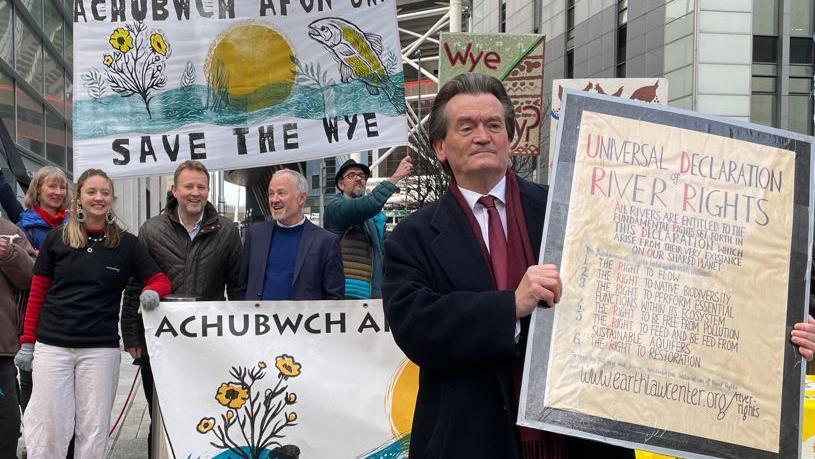Muck spreading row reaches High Court
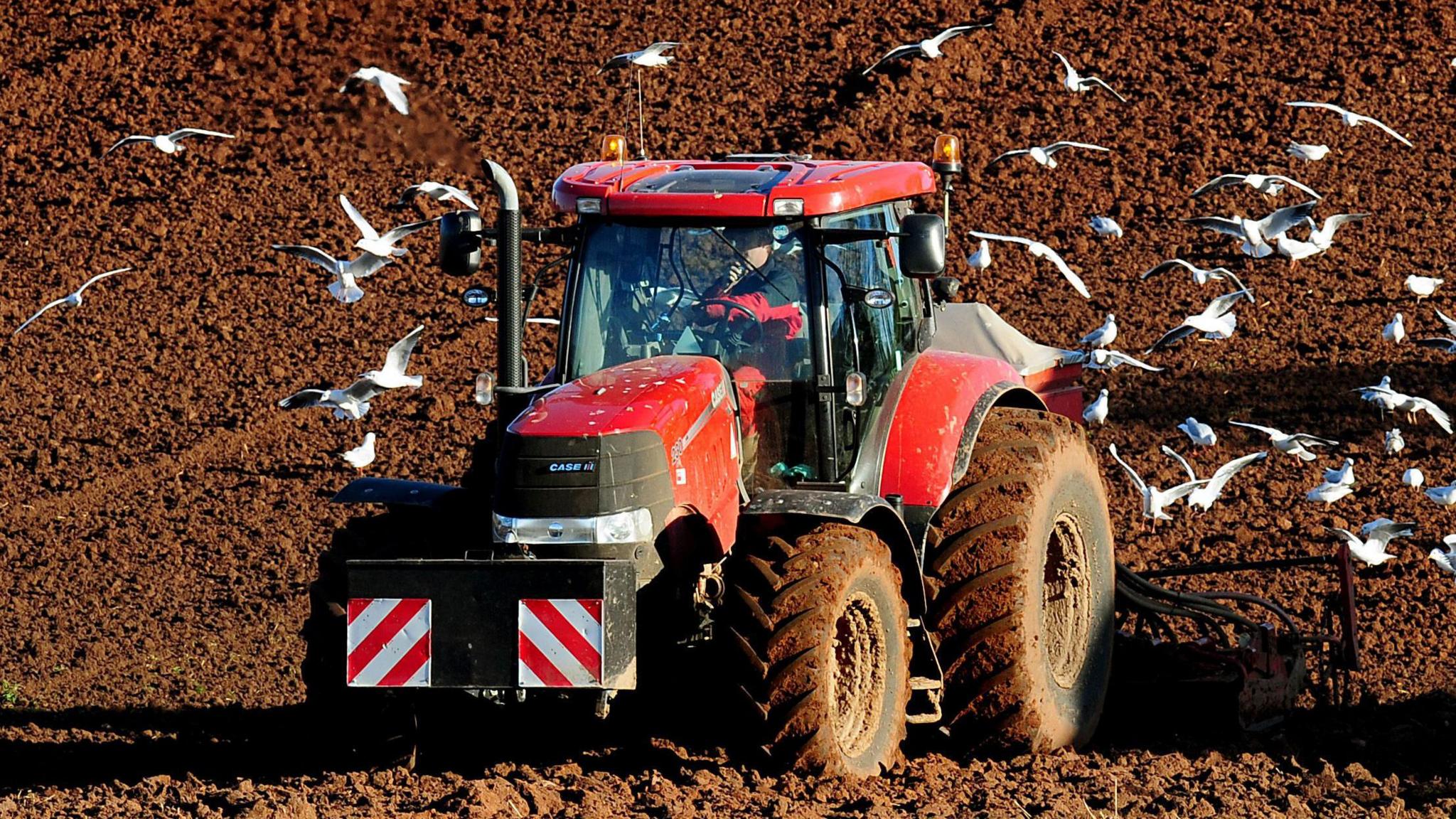
Farmers want more support to help them adapt to muck spreading changes
- Published
Farmers are taking on Herefordshire Council in the High Court over new planning rules on how animal waste is dealt with.
New guidelines have been brought in to try to reduce pollution in the River Wye catchment including classifying manure from agriculture as waste.
The National Farmers Union (NFU) says it wants more support and communication for the industry.
Herefordshire Council has said it "continues to work in partnership with the farming community to support local farming and our rural economy".
Since 2018, farmers have had to follow laws to prevent water pollution.
That includes not applying more fertiliser or muck than the soil needs and making "reasonable precautions" to stop it getting into streams, rivers and lakes.
However, last year, the status of the River Wye was downgraded to "unfavourable - declining" by Natural England after fewer species such as the Atlantic salmon were recorded.
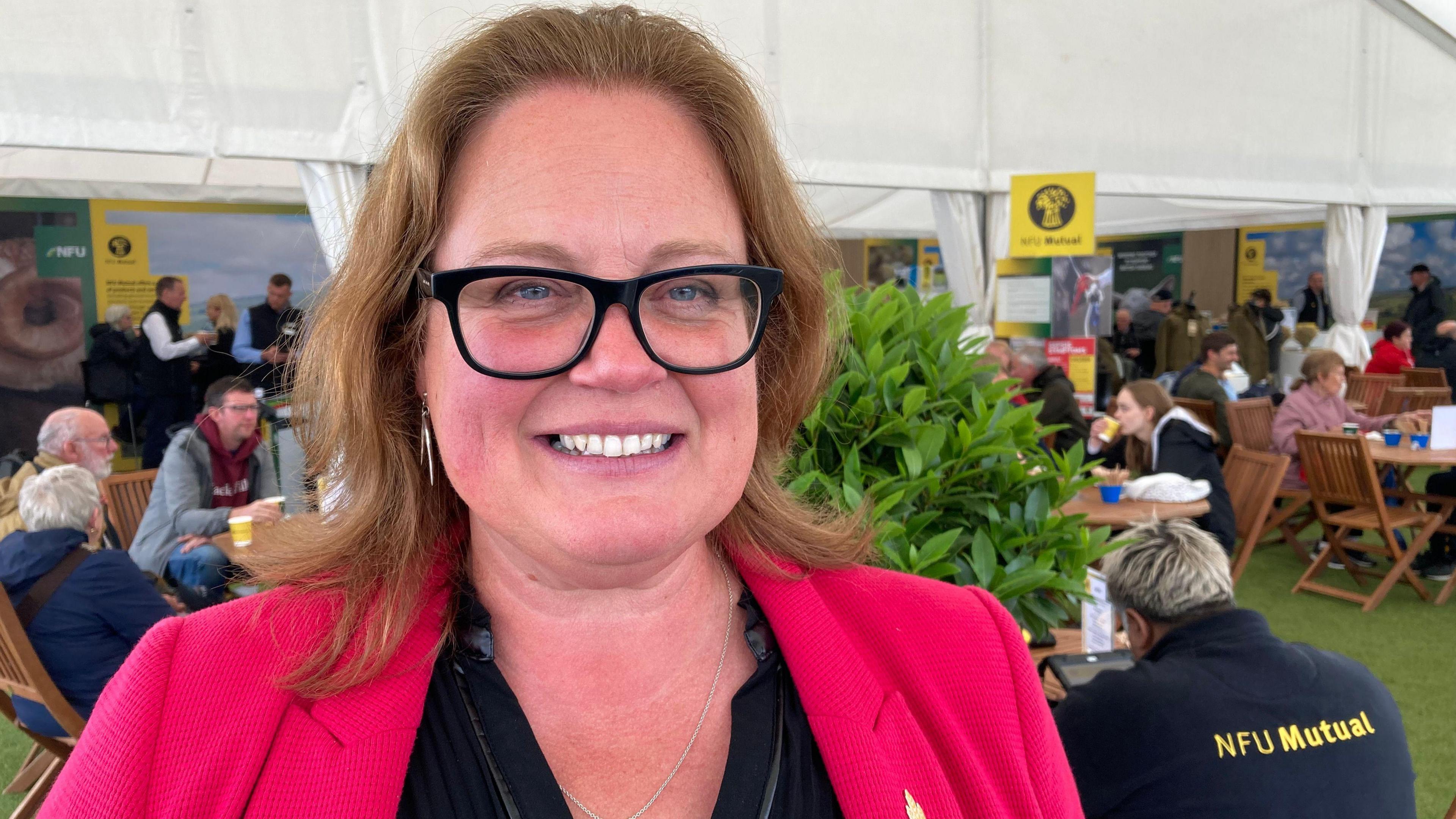
NFU Vice President Rachel Hallos wants better communication with farmers
Herefordshire Council is now recommending that manure and dirty water on farms is stored securely and not spread on land during rain.
The council said the new rules could "help address the poor state of water quality in the county's rivers".
The NFU is calling for more scientific evidence and data on pollution levels in Britain's rivers, and it wants current and future schemes to support farmers as they change how they work.
"We fully appreciate the importance of protecting the nation's rivers, and Britain's farmers recognise their businesses have a major role to play, alongside producing food, in improving water quality," said NFU Vice President Rachel Hallos.
"Much progress has already been made through regulation and voluntary measures such as carefully managing how much manure and fertiliser is applied to fields."
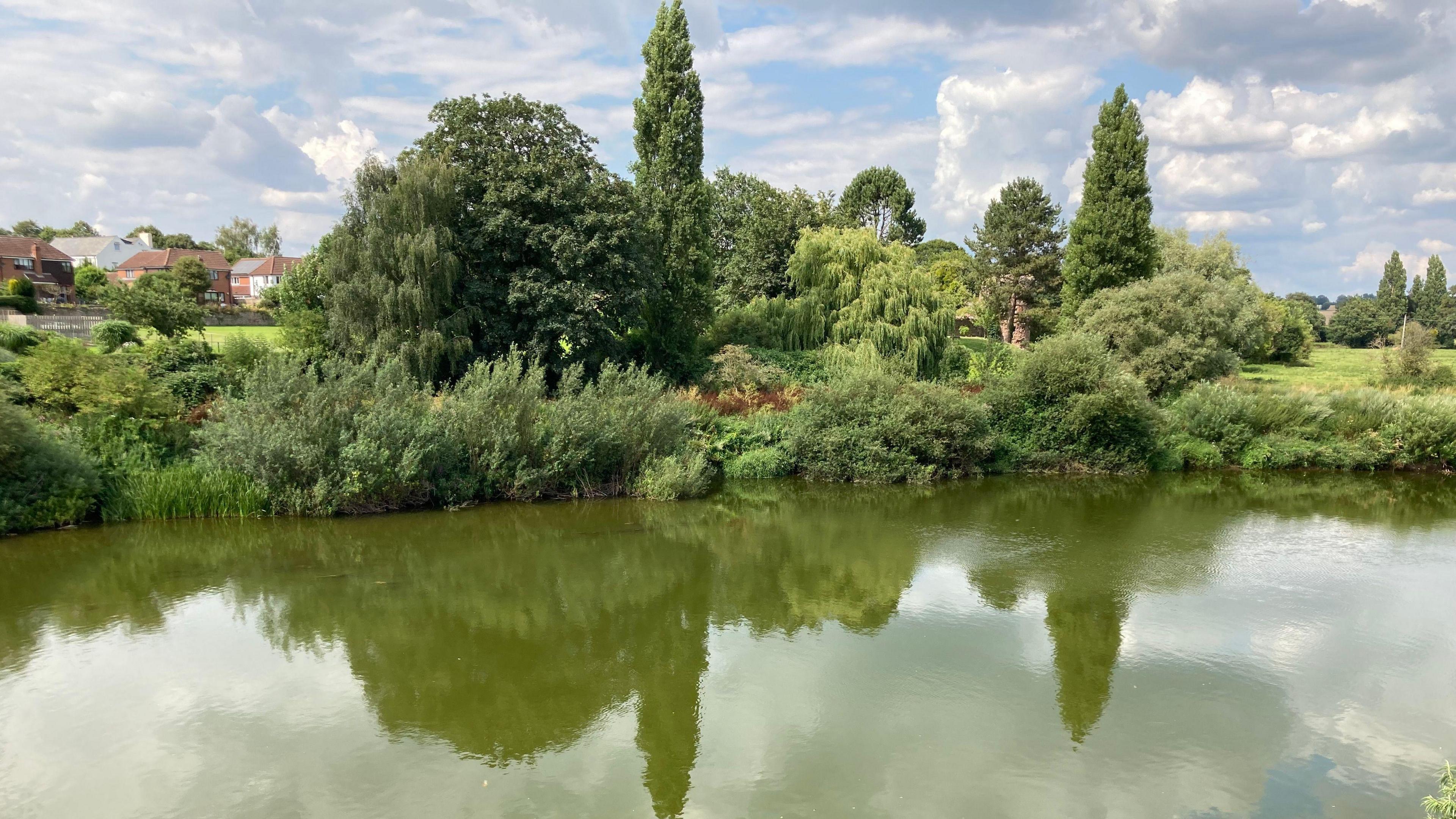
The status of the River Wye was downgraded to "unfavourable - declining" by Natural England
The court hearing is based around the Herefordshire Minerals and Waste Local Plan, which sets out how recycling, mining, gas extraction and other activities will be done up until 2041.
The NFU believes the council has not considered the impact that such changes could have on farmers, or consulted them enough.
Studies by scientists at Lancaster University have shown that 70% of the phosphate in the River Wye catchment comes from agriculture.
Manure, which contains phosphate, is spread on the land as a fertiliser, but when it rains it can run into streams and rivers and cause pollution.
Much, but not all, of the muck spread is thought to come from the estimated 24 million chickens being produced in the river catchment at any one time.
Herefordshire Council said the new policy aimed "to strengthen controls on agricultural waste-related development" and "it is a legal challenge to this that the judicial review is considering".
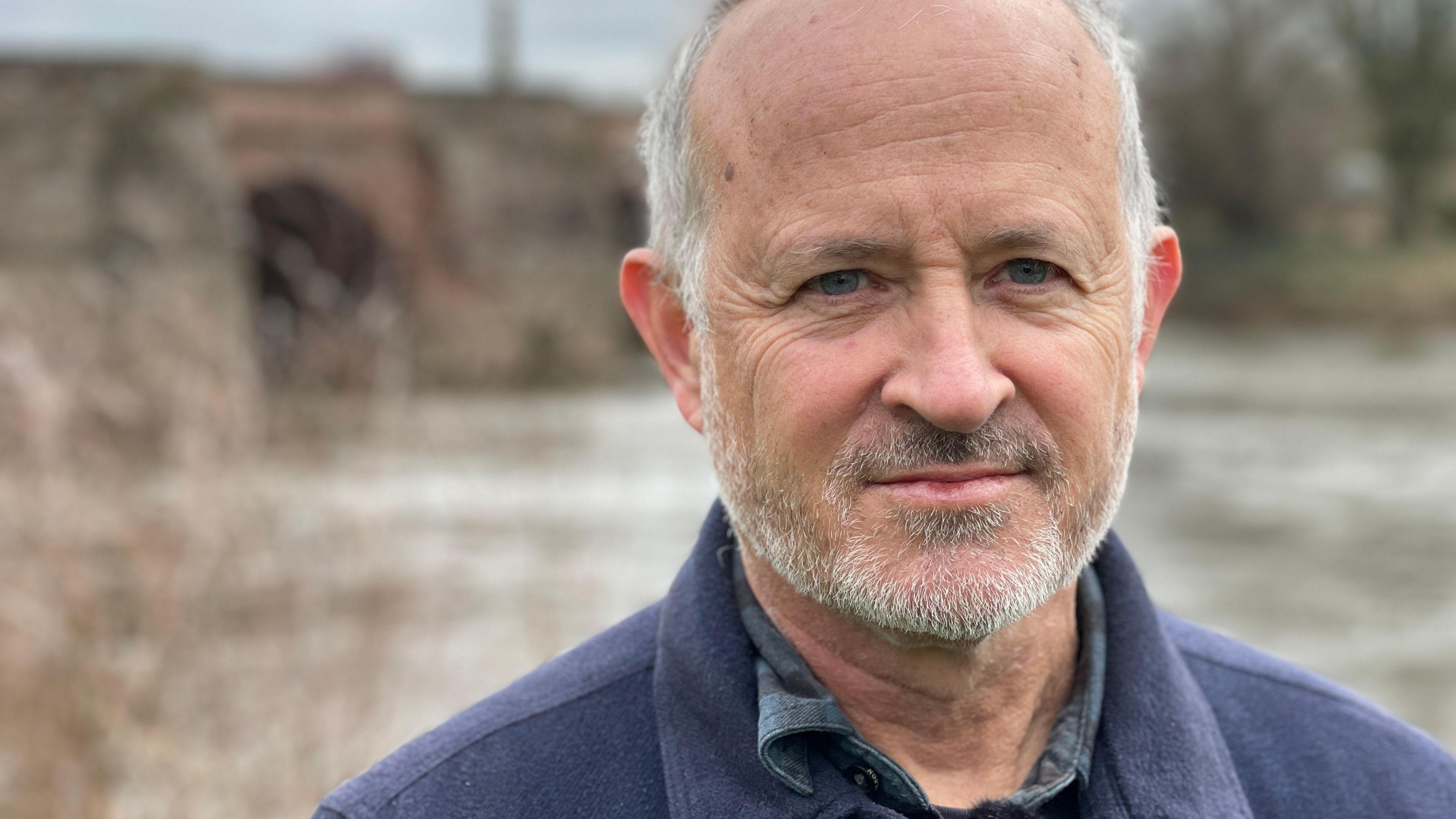
Charles Watson from the charity River Action supports the council's plans
The charity River Action has been given permission to speak at the court hearing.
"It is beyond preposterous that the tens of thousands of tonnes of animal excrement that spews each year out of Herefordshire's intensive poultry factory farms is anything other than waste," said the charity's founder Charles Watson.
Herefordshire Council said the judicial review was "an opportunity for the High Court to provide clarity on this significant and complex matter".
- Published12 August 2023
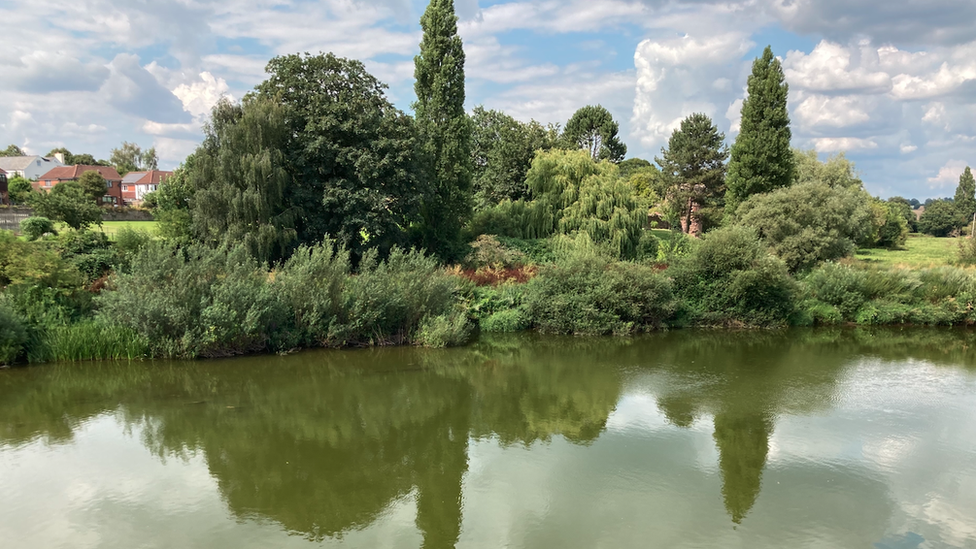
- Published30 May 2023
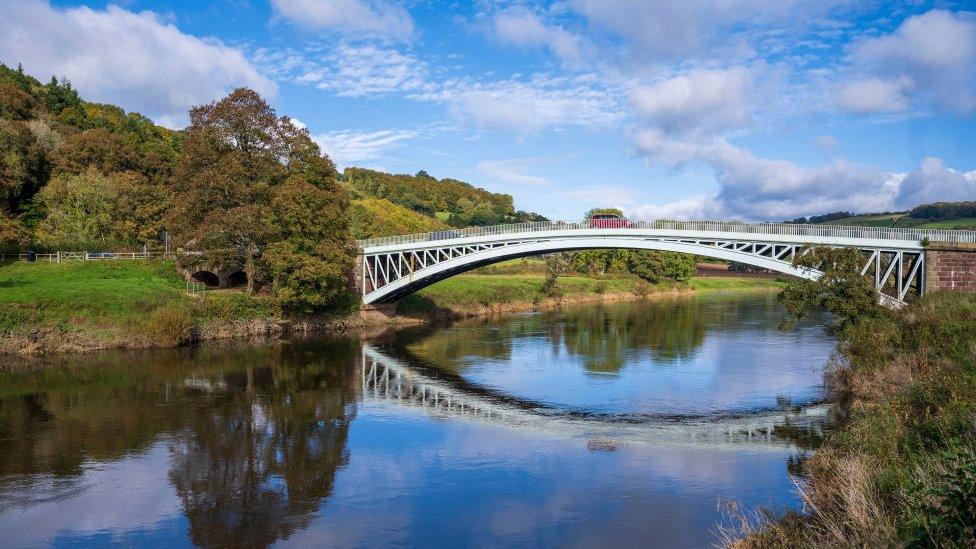
- Published24 May 2024
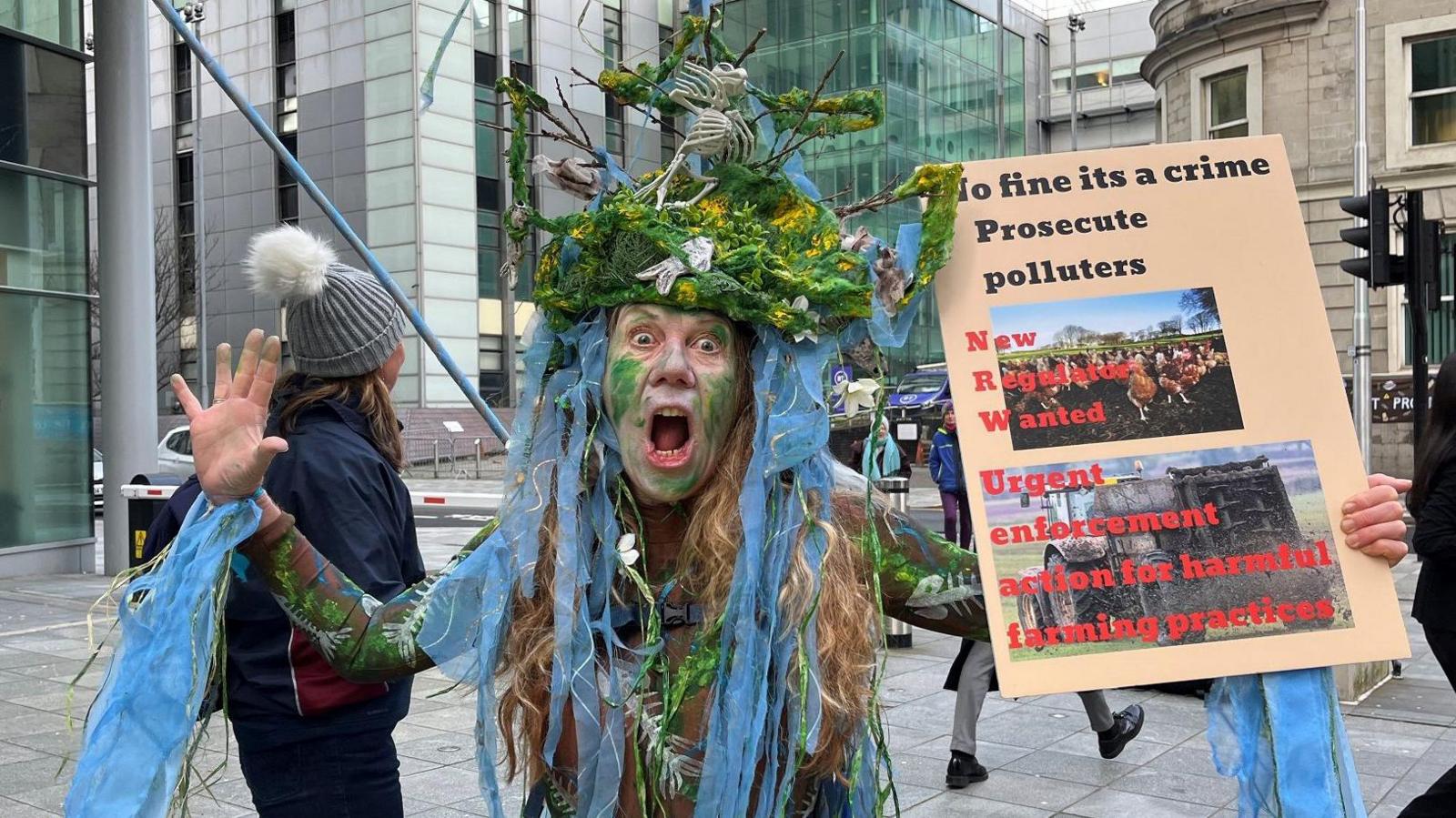
- Published22 August 2024

- Published28 October 2024
